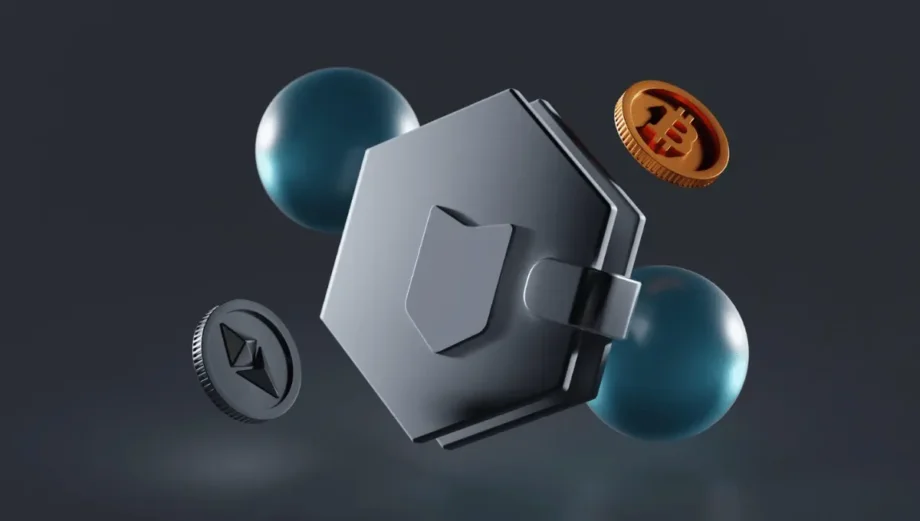Cryptocurrency has become an increasingly popular investment and payment option over the past few years. As a result, more and more people are looking for secure ways to store their digital assets. Cryptocurrency wallets are designed to provide a safe and secure way to store digital assets, but not all wallets support every type of cryptocurrency. In this article, we will explore which cryptocurrencies can be stored on wallets.
What is a cryptocurrency wallet
A cryptocurrency wallet is a piece of software that keeps track of private and public keys, communicates with different blockchain networks, and allows users to transfer and receive digital money as well as check their balance. In simpler terms, a cryptocurrency wallet is a digital wallet that allows users to store, send, and receive cryptocurrencies.
Types of cryptocurrency wallet
There are several types of cryptocurrency wallets available, and each type offers unique features and benefits. The most popular types of cryptocurrency wallets include:
Hardware wallets- Hardware wallets are physical devices that look like USB sticks and store your private keys offline. They offer the highest level of security and are immune to malware and other online threats. However, they can be expensive, and they need to be connected to a computer or mobile device to make transactions.
Software wallets- Software wallets are digital wallets that are accessible through a desktop, mobile app, or web browser. They are relatively easy to use and are free to download. However, they are vulnerable to online threats such as malware, viruses, and hacking attacks.
Paper wallets- Paper wallets are a type of cold storage that involves printing out your private and public keys on a piece of paper. They are highly secure as they are not connected to the internet, but they can be easily lost or damaged.
Online wallets- Online wallets are digital wallets that are hosted by a third-party provider. They are accessible through a web browser and are often free to use. However, they are vulnerable to hacking attacks and other online threats.
Which cryptocurrencies can be stored on wallets
Now that we have explored the different types of cryptocurrency wallets let’s take a look at which cryptocurrencies can be stored on wallets.
Bitcoin (BTC)- Bitcoin is the most popular and widely accepted cryptocurrency and can be stored on almost all types of wallets. Most hardware and software wallets support Bitcoin, including Ledger, Trezor, Coinbase, and MyEtherWallet.
Ethereum (ETH)- Ethereum is the second-largest cryptocurrency by market capitalization and is supported by most cryptocurrency wallets. Hardware wallets such as Ledger and Trezor, as well as software wallets such as MyEtherWallet and MetaMask, support Ethereum.
Monero (XMR)- Monero is a privacy-focused cryptocurrency that uses ring signatures, stealth addresses, and confidential transactions to offer a high level of anonymity for its users. It is supported by several hardware and software wallets, including Ledger, Trezor, and Monerujo. Monero’s privacy features make it a popular choice for those who prioritize anonymity and security in their digital transactions.
Ripple (XRP)- Ripple is a popular cryptocurrency that is designed for cross-border payments. It is supported by several cryptocurrency wallets, including Ledger, Trezor, and Atomic Wallet.
Litecoin (LTC)- Litecoin is a cryptocurrency that was created as a fork of Bitcoin and is designed to be faster and cheaper to use. It is supported by several hardware and software wallets, including Ledger, Trezor, and Exodus.
Binance Coin (BNB)- Binance Coin is a cryptocurrency that is used on the Binance exchange and is supported by several cryptocurrency wallets, including Ledger, Trezor, and Trust Wallet.
Cardano (ADA)- Cardano is a cryptocurrency that is designed to offer a more sustainable and efficient blockchain platform. It is supported by several hardware and software wallets, including Ledger, Trezor, and Daedalus.
Dogecoin (DOGE)- Dogecoin is a cryptocurrency that was created as a joke but has since gained popularity due to its meme-inspired branding. It is supported by several hardware and software wallets, including Ledger, Trezor, and Exodus.
Tether (USDT)- Tether is a stablecoin that is designed to maintain a 1:1 ratio with the US dollar. It is supported by several cryptocurrency wallets, including Ledger, Trezor, and MyEtherWallet.
Chainlink (LINK)- Chainlink is a cryptocurrency that is designed to connect smart contracts to real-world data. It is supported by several hardware and software wallets, including Ledger, Trezor, and MyEtherWallet.
Uniswap (UNI)- Uniswap is a decentralized exchange platform that is powered by its native cryptocurrency, UNI. It is supported by several hardware and software wallets, including Ledger, Trezor, and MyEtherWallet.
Solana (SOL)- Solana is a cryptocurrency that is designed to offer fast and efficient transactions. It is supported by several hardware and software wallets, including Ledger, Trezor, and SolFlare.
Conclusion
In conclusion, choosing a cryptocurrency wallet that supports the specific digital assets you want to store is crucial. By understanding the different types of wallets available and the cryptocurrencies they support, you can make an informed decision and ensure the security of your investments in the increasingly popular world of cryptocurrencies.




